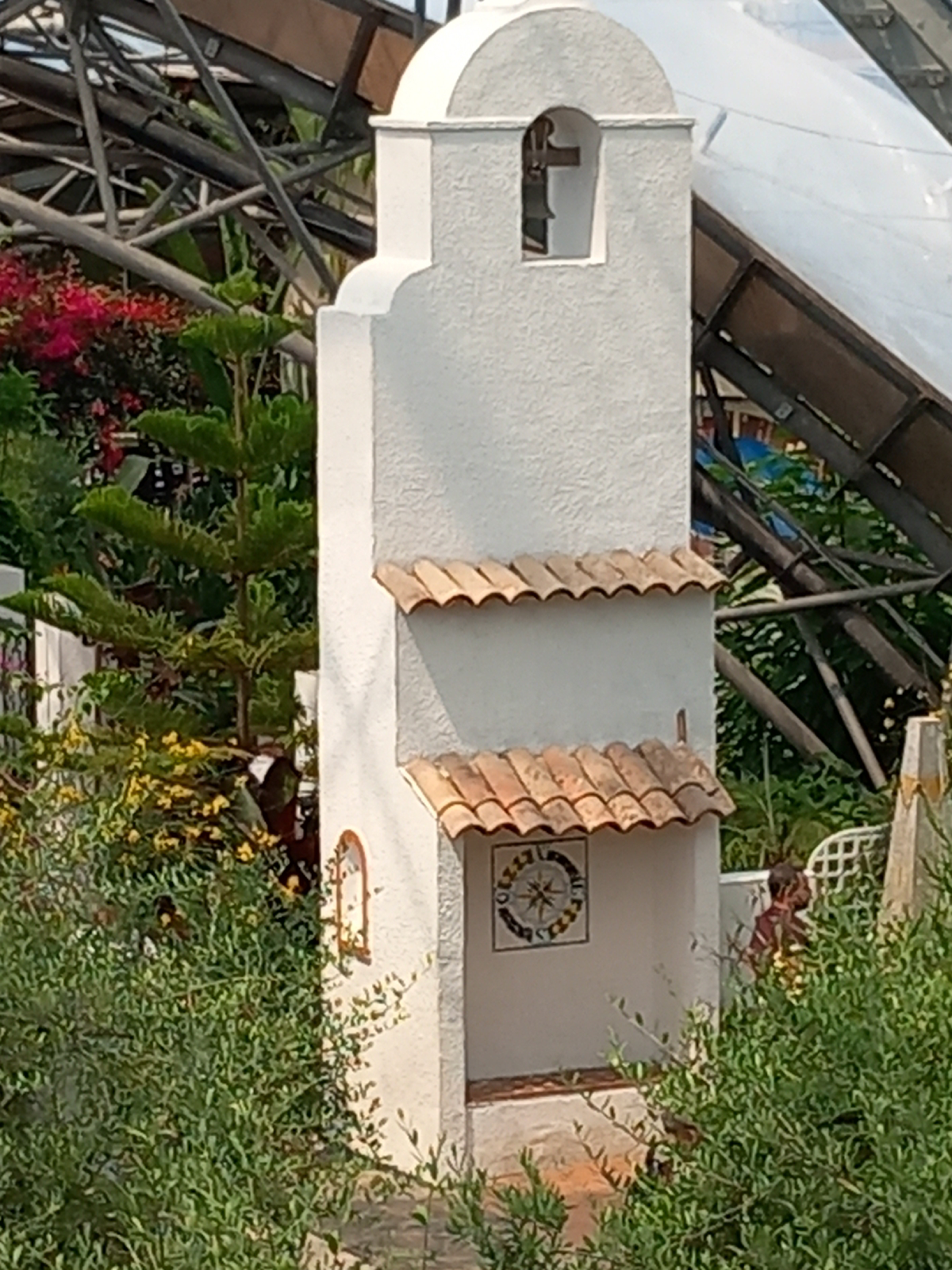Pentecostals for Peace!
“From the very beginning, the movement has been characterized by Quaker principles. The laws of the Kingdom, laid down by our elder brother, Jesus Christ, in His Sermon on the Mount, have been unqualifiedly adopted, consequently the movement has found itself opposed to the spilling of the blood of any man…”
THEREFORE we, as a body of Christians, while purposing to fulfill all the obligations of loyal citizenship, are nevertheless constrained to declare we cannot conscientiously participate in war and armed resistance which involves the actual destruction of human life, since this is contrary to our view of the clear teachings of the inspired Word of God, which is the sole basis of our faith–Assemblies of God, 1917
***
Assemblies of God:
Resolution Concerning the Attitude of the General Council of the Assemblies of God Toward any Military Service which Involves the Actual Participation in the Destruction of Human Life.
While recognizing human Government as of divine ordination and affirming our unswerving loyalty to the Government of the United States, nevertheless we are constrained to define our position with reference to the taking of human life.
WHEREAS, in the Constitutional Resolution adopted at the Hot Springs General Council, April 1-10, 1914, we plainly declare the Holy Inspired Scriptures to be the all-sufficient rule of faith and practice, and
WHEREAS the Scriptures deal plainly with the obligations and relations of humanity, setting forth the principles of “Peace on earth, good will toward men.” (Luke 2:14); and
WHEREAS we, as followers of the Lord Jesus Christ, the Prince of Peace, believe in implicit obedience to the Divine commands and precepts which instruct us to “Follow peace with all men,” (Heb. 12:14); “Thou shalt not kill,” (Exodus 20:13); “Resist not evil,” (Matt. 5:39); Love your enemies,” (Matt. 5:44): etc. and
WHEREAS these and other Scriptures have always been accepted and interpreted by our churches as prohibiting Christians from shedding blood or taking human life;
THEREFORE we, as a body of Christians, while purposing to fulfill all the obligations of loyal citizenship, are nevertheless constrained to declare we cannot conscientiously participate in war and armed resistance which involves the actual destruction of human life, since this is contrary to our view of the clear teachings of the inspired Word of God, which is the sole basis of our faith.
(Weekly Evangel, August 4, 1917, p. 6.)
***
Church of God in Christ (founded by C. H. Mason):
We believe the shedding of human blood or taking of human life to be contrary to the teaching of our Lord and Savior, and as a body are adverse to war in all its various forms.
(Walter J Hollenweger, “Black Pentecostal Concept,” Concept Journal, special issue no. 30 (June 1970) pp. 27-28.)
***
Church of God (Cleveland, TN):
If any of our members should in any way advocate war, or try to persuade any of these registrants to go on to war, or urge or enthuse them into a desire to fight, such members will be considered disloyal to the Church and alas to the Church of the Bible, and a continuance of the same may lead to the necessary action (expulsion) under our laws and principles.
(“War Notice,” Evangel, 4 Aug. 1917, p.3)
***
The Weekly Evangel
Magazine of the Assemblies of God, the largest Pentecostal denomination in the United States. Most of the following texts are written between 1914 and 1918, that is, during World War I:
From the very beginning, the movement has been characterized by Quaker principles. The laws of the Kingdom, laid down by our elder brother, Jesus Christ, in His Sermon on the Mount, have been unqualifiedly adopted, consequently the movement has found itself opposed to the spilling of the blood of any man, or of offering resistance to any aggression. Every branch of the movement, whether in the United States, Canada, Great Britain, or Germany has held themselves to this principle. When the war first broke out in August of 1914, our Pentecostal brethren in Germany found themselves in a peculiar position. Some of those who were called to the colors responded, but many were court marshaled and shot because they heartily subscribed to the principles of non-resistance. Great Britain has been more humane. Some of our British brethren have been given non-combatant service, and none have been shot down because of their faith.
(“The Pentecostal Movement and the Conscription Law,” The Weekly Evangel, 4 August 1917, 6.)
He said of disciples on another occasion, ‘They are not of this world, even as I am not of the world. . . .’ ‘Our citizenship is in heaven.’ (Phil.3:15 R.V.). . . . Let us be loyal to Him. . . . ‘Blessed are the peacemakers: for they will be called children of God.’ It is not those who delight in war, but those who are so permeated by the Spirit of the Prince of peace, and who seek to bring others into a blessed condition of peace with God and with their fellow man that inherit the blessing of the Master. . . . ‘But I say to you, That ye resist not evil. . . . Love your enemies, bless them that curse you, do good to them that hate you. . . .’
(“The Crisis,” The Weekly Evangel, 21 April 1917, 7.)
The nations [should have]….spread the Gospel of Peace and made known the rule of Jesus…. ‘the King of Peace’ instead of obeying the ‘traditions of men’ and preparing big guns, air craft, rapid firers [sic], submarines, a big navy, and bigger army for the destruction of human life.
(“Tithes and Free Will Offerings,” The Weekly Evangel, 10 July 1915, 3.)
The Pentecostal people, as a whole, are uncompromisingly opposed to war, having much the same spirit as the early Quakers…. Indeed, some have already urged us to arrange for a great peace council among the Pentecostal saints, to put ourselves on record as being opposed to war at home or abroad. The Gospel Publishing House is now in possession of a powerful book entitled, “Blood against Blood,” written by Arthur Booth-Clibborn, an English Pentecostal brother who has been the means of a glorious ministry in Germany before the opening of the war. We recommend that you purchase it and become imbued with the spirit of its contents, in complete opposition and protest against war and the shedding of blood.
(“Pentecostal Saints Opposed to War,” Weekly Evangel, June 19, 1915, p. 1; Weekly Evangel, July 10, 1915.)
***
The worldling knows only one kind of brotherhood– that in Adam. The Christian knows two, that in Adam and that in Christ. In war the worldling denies one kind of tie in killing his fellow-creature; the Christian denies two kinds–he kills his fellow-creature and his fellow-Christian. Besides, the former has ever a “field” (a battlefield), open to him which the latter has not: He can sacrifice his life as a missionary, and, if needs be, as a martyr, and “sow himself” thus a seed of righteousness and life-producing life rather than as a seed of sin and death-producing death, which every sacrifice of life on the carnal battlefield inevitably is!
(Arthur Sydney Booth-Clibborn, Blood Against Blood, 3rd ed. (New York: Charles C.Cook, 1914).
***
Justin the Martyr, in the second century, says: “The devil is the author of all war.”
Tatian says the same.
Clemens of Alexandria spoke emphatically in the same sense.
Tertullian wrote: “Jesus Christ, by disarming Peter, disarmed every soldier afterwards, for custom never sanctions an illicit act.” And he further writes: “Can one who professes the peaceful doctrine of the Gospel be a soldier, when it is his duty not so much as to go to law?” And again: “Our religion teaches us that it is better to be killed than to kill.”
Cyprian declares war, like all other Pagan customs of his times, to be repugnant to the spirit and letter of the gospel. It is he who seems to have first asked of the whole world the unanswerable question: “Why is it that when a single murder is committed, it is deemed a crime, but that that crime shall be a virtue if multitudes are slaughtered?”
Lactantius, the next eminent writer in order of time after Cyprian, says: “It can never be lawful for a righteous man to go to war, whose warfare is in righteousness itself.” And again: “It can never be lawful to kill a man, whose person the Divine Being designed to be sacred as to violence.”
Origen, Ambrose, [Irenaeus], Chrysostom, Jerome and Cyril gave it also as their several opinions that it was unlawful for Christians to go to war.
(Arthur Sydney Booth-Clibborn, Blood Against Blood, pp 106-107)




















Comments
Post a Comment
What sayest thou?